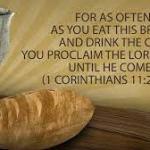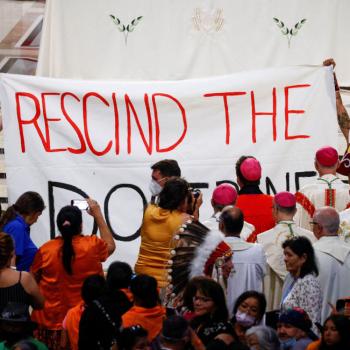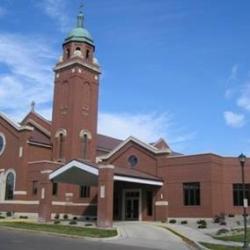Part 7 on Being Consumed: Economics and Christian Desire

Economy, says William T. Cavanaugh in the final chapter of Being Consumed, is “the science that studies the allocation of resources under conditions of scarcity.” (p. 90) What happens when things, in fact, aren’t scarce? Say, in the United States, in an economy that produces everything in previously unheard of abundance? This economy continues to exist, and exist powerfully, by creating scarcity.
This economy takes advantage of something philosophers have known since the Middle Ages and before. We live in a finite world with finite knowledge and abilities, but our desires are potentially infinite. Sages of old knew the way to reconcile those opposites was to place limits on desire. In contrast, our economy turns excessive desire into a virtue. Cavanaugh describes the story of this market. It’s a story of “scarcity miraculously turned into abundance by consumption.” (p. 93) But scarcity doesn’t disappear even then. Scarcity becomes the “hunger of those who want more, without reference to what they already have.” (p. 90)
The market’s story: guaranteed scarcity
Adam Smith, whose market theory animates Western capitalism, tells a story about charity and justice. Charity operates on the individual level. Neither markets nor governments require charity to exist. But they do require justice and make provisions to enforce it. Still Smith’s theory doesn’t simply leave the poor person to the mercy of benevolent people.
According to Smith, the ‘invisible hand’ of the market guides economic activity so that the pursuit of self-interest by uncoordinated individuals miraculously works out to the benefit of all…. Through the mechanism of demand and supply, the competition of self-interested individuals will result in the production of goods society wants, at the right prices, with sufficient employment for all at the right wages for the foreseeable future. (p. 93)
Abundance for all is “just around the corner” but never actually arriving. I think Smith failed to recon with one thing that turns his story into a tragedy. Human desire is potentially infinite. While some engage in a relentless pursuit of goods that fail to satisfy, others struggle to meet their genuine needs. And the market can’t tell the difference between genuine need and frivolous desire but favors whatever will keep the largest amount of money circulating the fastest.
The Eucharist’s story: abundance
No money was exchanged when Jesus multiplied the loaves and fishes for the multitude. We get this story first from the Gospel we call Mark. The story itself doesn’t say whether it’s an account of a historical event or a particularly Jewish way of making a point. Either way, “Mark’s” audience would have recognized that there’s a message there, especially when Mark turns around and tells the same story a second time.
The message is in the details. The first story places the event in Jewish territory and uses a Jewish vocabulary and symbolism. The second story happens in Gentile territory with vocabulary and symbolism more familiar to Greeks. Mark’s point: The Kingdom of God is for Jews and Gentiles. Ethnicity doesn’t rule, and neither, Mark also insists, does status or wealth. (Ched Myers gives this interpretation of the two loaves and fishes story in Binding the Strongman. I wrote about it here.)
Christians see in the story of the multiplication of loaves and fishes a foreshadowing of the Eucharist. The one Body of Christ is consumed by many in the form of bread. The “one loaf,” broken and shared, makes the same Christ available to multitudes through time and space. It’s a story not of scarcity but of abundance.
Is it also a story of spiritual consumerism? Is the Eucharist just another one of our limitless desires? Eucharist could be packaged that way, Cavanaugh says, becoming a merely “private spirituality of self-fulfillment.” (p. 95) At this point I think of another theologian and two kinds of desire. I’m also thinking of two different reasons for going to church.
Need or passion: Two sources of desire
We desire things that we think we need or lack. Economies thrive on this kind of desire, coming from real or perceived scarcity. To this desire David Tracy, in his new book Fragments, contrasts “a desire constituted by abounding, self-giving, generous love.” (p. 115) Other words that come to mind are “fascination,” “passion,” and “devotion.” One “throws oneself into” an activity or relationship concerning the object of this desire.
I remember the reason that my religion teachers would give for my going to church every Sunday. My spiritual tank was running low after a long week of worldly struggles—with temptations or whatever. I needed a refill on the graces that Mass and the Eucharist would give. Then I’d be ready to face the world for another week.
Later I realized there isn’t much passion in that approach to the Eucharist. There’s no fascination, either, in just coming for what I can get. Eucharist is a time for devotion and joyously free self-giving. It’s a freedom that comes from God’s prior self-gift, which happens Sundays and weekdays both. These days are not at all lacking in graces. With grace there is no scarcity that needs to be made up on Sunday.
“Economy of Communion”
“The Eucharist,” Cavanaugh says, “announces the coming of the kingdom of God now.” (p. 98) It challenges Christians to live in that kingdom, as if the superabundance of the Eucharist were the model for our daily lives. And it challenges Cavanaugh to find examples where that life is being lived successfully in today’s economy. In previous chapters Cavanaugh referred to the Fair Trade economic movement, the Spain-based Mondrogan Cooperative Movement, and Community or Church Supported Agriculture. This final chapter introduces us to Economy of Communion.
Economy of Communion is a lay-led Catholic movement of entrepreneurs that began in 1991. Its original home is Brazil, but it has become worldwide. It has continued expanding since Cavanaugh published in 2008. By 2015 it had a membership that included 850 for-profit businesses. (“The Entrepreneurial Vision of the Economy of Communion”) Today their big topic of discussion is how to respond as Christians and business people to the Covid-19 pandemic.
These business leaders try to make the Eucharistic vision of life in abundance a reality. Specifically, they
… divide their profits in three equal parts: a third for direct aid to the poor, a third for educational projects that further a culture of communion, and a third for the development of the business. (p. 99)
The article referenced in the picture at the top describes internal workings of Economy of Communion companies. They focus on persons rather than things with specific practices like “consultation with workers in planning, open reporting of profits and losses, celebrations and storytelling, and attention to the personal and spiritual development of employees.”
A Brazilian participant in the movement explains the aid to the poor segment:
It is not merely a question of reaching the right persons and of giving priority to the most urgent needs…. It also involves making sure that the assistance be part of a fraternal rapport that does not tolerate positions of inferiority and superiority because it sees the other person as another me.” (p. 99-100)
In the Eucharist what fascinates and inspires passion in me is becoming one Body in Christ with all those with whom I share a simple meal and with all those near and far who are members of the Body of Christ. Participants in Economy of Communion put that belief into practice, treating all stakeholders as members of that one body. That includes not only owners and shareholders but also employees and customers, the “middlemen” of the supply chain and the producers at the beginning of that chain, and even competitors.
Being consumed
There are two sides to the title of Cavanaugh’s book, Being Consumed: Economics and Christian Desire. They echo two stories of our world, that of the reigning economy and that of the Eucharist. The global economy makes us all consumers. What we consume then is the life-giving capacity of the earth as well as the poor and powerless of the human community. As food that we eat becomes part of our bodies so the entire world becomes part of our ever expanding egos. Eventually even we wear out from the excess of our own consumption. A rapacious economy consumes us all.
The Eucharist turns the act of consumption around. We become part of the food we eat, the Body of Christ, a body that is pan-human and cosmic. Being consumed doesn’t only mean being worn out. It can mean also being fascinated, passionate, and devoted. In the Eucharist we experience that kind of being consumed.
Image credit: Economy of Communion












